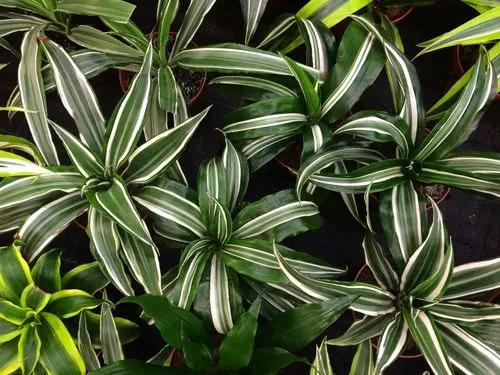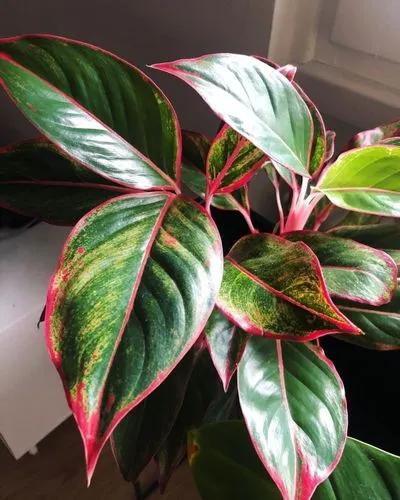Carolyn Whorton Caladium is an herbaceous plant from the Araceae family. In the wild, the plant lives in the tropical forests of South and Central America. Caladium is a very popular plant due to its colorful leaves. You can grow this plant both indoors and outdoors.
Carolyn Wharton Caladium Care
Caladium bicolor 'Carolyn Whorton'



Carolyn Whorton Caladium has a shape of a bush with large pointed leaves. The leaves of the plant are spotted, green at the edges. In the center of the leaf are white, red, and pink spots. Caladium produces a few long single-petaled white or light pink flowers when flowering. Plant height is 12-22 inches (30-60 centimeters).
How to Care for the Plant

Water

Florists recommend paying special attention to the correct watering of Carolyn Whorton Caladium. On hot days, you should water Caladium generously about once a week. However, you should remember this plant does not like stagnant moisture. Experts advise watering Caladium less often and not so abundantly in winter. At the same time, you should make sure the soil does not dry out.

Pruning

Caladium does not need pruning. You only need to remove fallen leaves from the container, so they do not start to rot.

Fertilizer

You need to fertilize from early spring to mid-fall. Do this two or three times a week. For Caladium, liquid fertilizer with a calcium content is suitable.

Sunlight

Caladium needs bright spread light, so the best place for it would be the east or west windows. Remember, the plant is afraid of dry air, so you must regularly moisten the air next to the plant.

Soil

For the plant, a loose and light mixture is perfect. It should not be overly acidic. You can prepare the soil for Carolyn Whorton Caladium yourself. To do this, you need to combine humus, sand, and peat in a ratio of 3:1:1.

Propagation

Carolyn Whorton Caladium reproduces through tubers. To do this, you can use young tubers or cut old ones. Experts advise drying a tuber for a few days and then planting it in a new container. Carolyn Whorton Caladium breeds in the first half of spring.

Temperature

Like most tropical plants, Caladium fears drafts or low air temperatures. The flower feels best at a temperature of 68-77 degrees Fahrenheit (20-25 degrees Celsius). In late autumn, you need to move the plant to a cold place with an air temperature of about 50 degrees Fahrenheit (10 degrees Celsius). Remember, you should not move Carolyn Whorton Caladium directly from a warm to a cold place. The plant needs a gradual decrease in temperature.

Container

For Carolyn Whorton Caladium, a narrow and tall pot is suitable. There should be a drainage hole at the bottom of the pot so that moisture does not linger.

Fun fact

Caladium is a poisonous plant, so its bright colors are a warning in the wild.

Additional

Indoors or out, caladiums are a seasonal plant, with foliage in the summer and a rest period in the autumn or winter. Their rest period isn't determined by temperature or light cycle, but by how long the plant has been growing.

Popularity

4,224 people already have this plant 1,258 people have added this plant to their wishlists
Discover more plants with the list below
Popular articles






